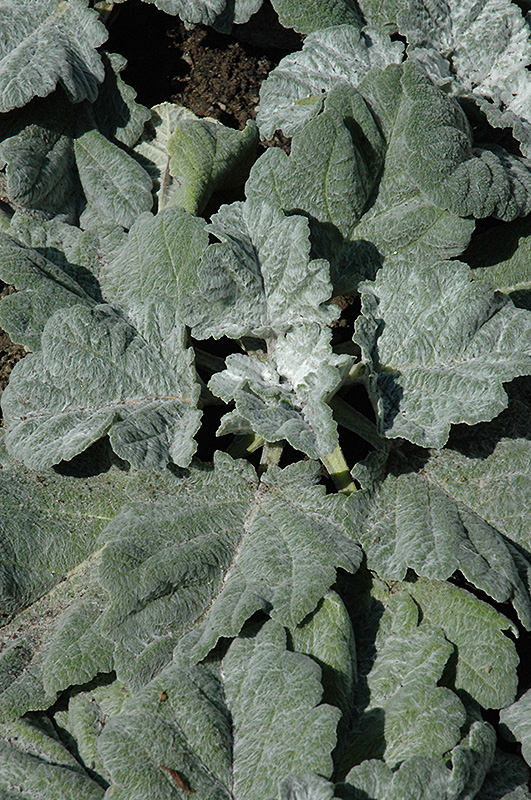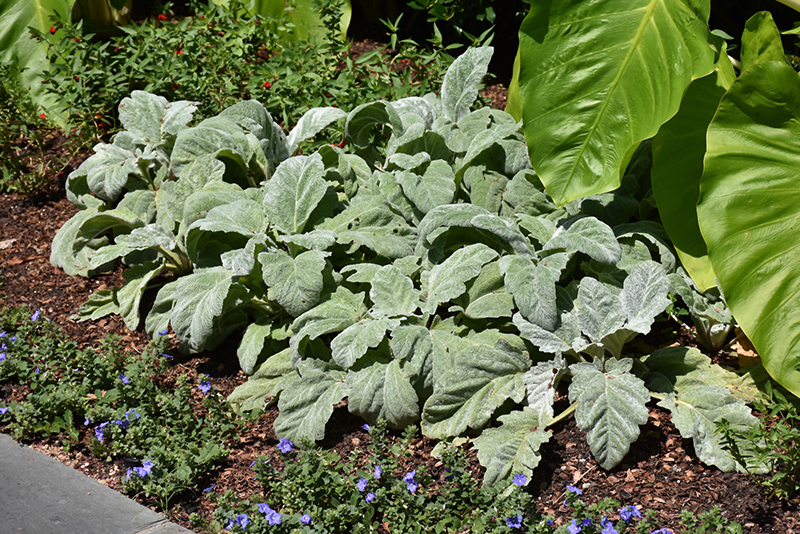Plant Height: 12 inches
Flower Height: 24 inches
Spacing: 15 inches
Sunlight:
![]()
Hardiness Zone: (annual)
Other Names: Perennial Salvia
Description:
A striking variety that produces downy silver-gray rosettes of foliage the first year with flowering stems rising above the foliage the second year; tends to like light, gravelly, or sandy soil and is drought tolerant; avoid wet soils in winter
Ornamental Features
Silver Sage has masses of beautiful spikes of shell pink flowers with white overtones rising above the foliage in early summer, which are most effective when planted in groupings. Its attractive tomentose oval leaves remain silver in colour throughout the season.
Landscape Attributes
Silver Sage is a dense herbaceous annual with a mounded form. Its relatively coarse texture can be used to stand it apart from other garden plants with finer foliage.
This plant will require occasional maintenance and upkeep, and is best cleaned up in early spring before it resumes active growth for the season. Deer don't particularly care for this plant and will usually leave it alone in favor of tastier treats. Gardeners should be aware of the following characteristic(s) that may warrant special consideration;
- Self-Seeding
Silver Sage is recommended for the following landscape applications;
- Mass Planting
- Border Edging
- General Garden Use
- Container Planting
Planting & Growing
Silver Sage will grow to be about 12 inches tall at maturity extending to 24 inches tall with the flowers, with a spread of 18 inches. When grown in masses or used as a bedding plant, individual plants should be spaced approximately 15 inches apart. Its foliage tends to remain dense right to the ground, not requiring facer plants in front. Although it's not a true annual, this fast-growing plant can be expected to behave as an annual in our climate if left outdoors over the winter, usually needing replacement the following year. As such, gardeners should take into consideration that it will perform differently than it would in its native habitat.
This plant should only be grown in full sunlight. It prefers dry to average moisture levels with very well-drained soil, and will often die in standing water. It is considered to be drought-tolerant, and thus makes an ideal choice for a low-water garden or xeriscape application. It is not particular as to soil pH, but grows best in sandy soils. It is somewhat tolerant of urban pollution. Consider applying a thick mulch around the root zone in winter to protect it in exposed locations or colder microclimates. This is a selected variety of a species not originally from North America.
Silver Sage is a fine choice for the garden, but it is also a good selection for planting in outdoor pots and containers. It can be used either as 'filler' or as a 'thriller' in the 'spiller-thriller-filler' container combination, depending on the height and form of the other plants used in the container planting. Note that when growing plants in outdoor containers and baskets, they may require more frequent waterings than they would in the yard or garden.


